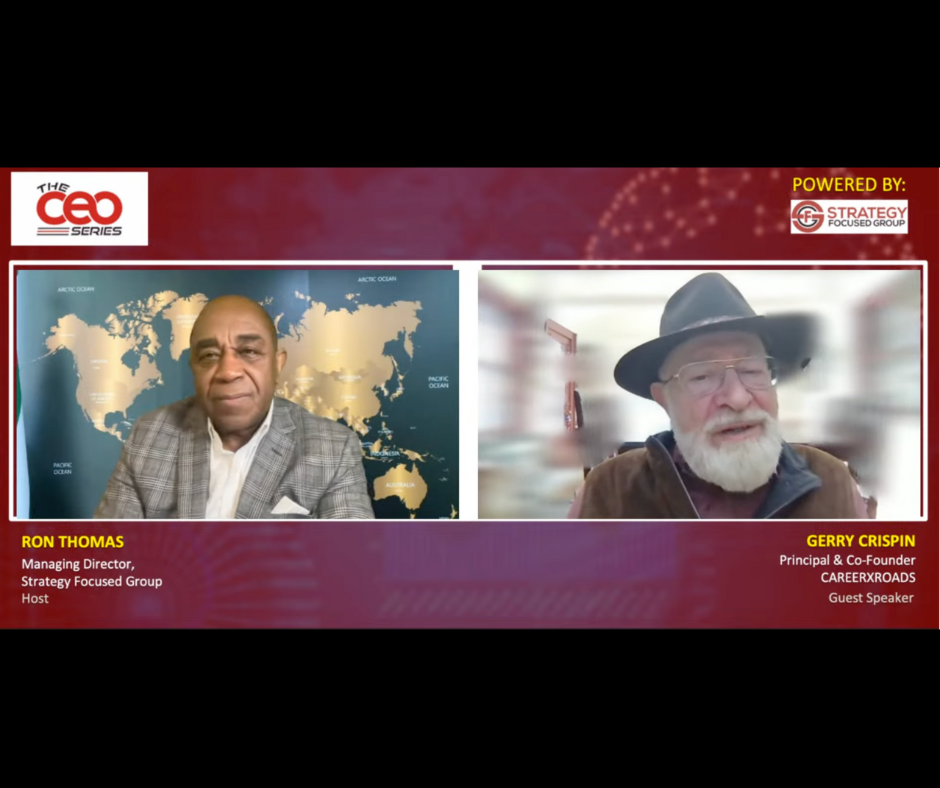Funny Friday Photos
‘White Collar Recession’ Derailing Careers

Canva.Com
If you are in the job market today and are interested in management or executive-level positions, be prepared for a challenging, time-consuming slog.
While the overall economy is good, executive and management hiring is experiencing what Aki Ito, senior correspondent with BusinessInsider, calls a “white collar recession.” This rare market condition has made finding a management job a miserable, protracted experience, and there are no indicators that it will rebound soon.
Several senior executives who have come to our firm for strategic support to navigate the radically changing job market say recruiters and corporate hiring chiefs have told them that this is as bad as it has ever been. Many executives have submitted dozens upon dozens of job applications to no avail. One healthcare executive who recently landed a new position said his search took more than a year and more than 100 applications before he got two offers. “I found my true passion, but this was not what I set out to do.” He is grateful but hopes never to go through an ordeal like that again.
To read more and to see Active Career Management recommendations to offset this career threat, visit https://johngself.substack.com/p/deep-white-collar-recession-derails?utm_source=activity_item
JOB SEEKERS: Beware of this Peter Principle
The Peter Principle, where individuals are promoted to their level of incompetence, is alive and well in America. In corporate America, to be precise. In the executive suite, to put a fine point on it.
The failure rate of new executives is shockingly high. This is not a new post-pandemic trend. It has been a costly fact of life for 30 years since the Corporate Executive Board (CEB) first began to track this phenomenon in 1994.
To read more, click this link.
https://johngself.substack.com

Link for the full interview: https://www.youtube.com/watch?v=-yDM3dIHHsI&t=2304s.
WHich College Degree Will You Bet On: TECHNOLOGY OR LIBERAL ARTS?
In five to ten years, which degrees will be more valuable—technology or liberal arts? Through today’s lens, most people would say technology. They would be wrong.
So says legendary investor and entrepreneur billionaire Mark Cuban. The most critical degrees will be in liberal arts. When you have sophisticated automation of automation, Cuban believes, you will need people with a different perspective to maximize the effective use of the information.
Mr. Cuban is no futurist. He is a savvy businessman with a keen eye for reading the nature and pace of change, and he is very likely spot-on on this subject.
Game-changing advances in machine learning, neural networks, and deep learning are fueling the rise in the automation of automation. Once this technological phenomenon reaches a tipping point, our long-held ideas regarding workforce management and economic development will go out the window.
Unless you have the sophisticated skills necessary to design and maintain these highly complex network structures that are already emerging at breathtaking speed, thousands of entry-level and traditional programmers and software engineers who have produced the operating systems and the “app magic” that are already rapidly changing our lives, will be out of a job. As long as you have the knowledge, insight, and skills such that the computer works for you, you will be fine, but as soon as that construct flips and you work for the computer, you will be out of a job, Cuban believes.
The technology and pace of change that used to take 50 years, then 30, then 10, could now take five, three, or fewer years. Cuban predicts that the nature of employment will change.
Mr. Cuban believes the key issue is not if or when this tipping point will occur but what we will do with all the people who find that their expertise and skills have been machine-automated and no longer have a job. “Most large companies already see this. They know they will not need as many employees as they have today,” Cuban explained.
This disruption will spread across the entire economy, producing massive unemployment. Traditional solutions, such as education and job training for adults, will not work.
He returns to the big question: “What will you do with the 5 or 10 million people without jobs?”
I think there is a larger question: How do we manage this epic crisis with a dysfunctional government operating with a record deficit (which is treated more as a campaign issue rather than an existential national security threat — the interest on this debt exceeds the current Pentagon budget), an unstable geopolitical order, and, sooner or later, massive economic disruption caused by millions of college-educated and skilled employees falling into unemployment.
Aging Executive Succeeds BECAUSE, Not IN SPITE OF His Age
While the most valuable tech companies were founded in dorm rooms, garages, and diners by notably young entrepreneurs—19 to 30 years old—the world’s most invaluable company was founded by Morris Chang when he was 55 years old.
As the Wall Street Journal reported, this is the first time anyone so old created a company worth so much. Mr. Chang created Taiwan Semiconductor Manufacturing — known to business insiders who know the story as TSMC — and was successful not despite his age but because of his age.
Mr. Chang had a long and successful career in the chip industry. He would have been judged to be a huge success if he had retired in 1985 after 30 years of success in the US and played bridge (a passion) for the rest of his life. Instead, he reinvented himself, moved to Taiwan, and created a stand-alone chip manufacturer that produced essential parts for computers, phones, cars, artificial intelligence, and many other devices integral to our daily lives.
His approach revolutionized the industry. He manufactures chips that he neither designs nor markets. He has created a business model that prevents him from competing with his clients. In return, those potential competitors were saved from developing, constructing, and operating costly, complex, and sophisticated facilities where circuits are carved on silicon wafers.
Not only did Chang revolutionize the chip-making business, but he built a company that has become indispensable to the global economy.
Without his industry knowledge, years of experience, and manufacturing insights, he would not have envisioned such a plan.
For older workers struggling to get “back in the game” with a productive, rewarding job, take note of Mr. Chang, take to heart his success, and believe that your story can also be compelling.
Bad Recruiting, Poor Accountability Costs Businesses Millions

Here is a link to our latest newsletter on Substack. This week, we take a sharp look at recruiting and the fact this industry, including corporate recruiters, is long on process and short on innovation and accountability. https://open.substack.com/pub/johngself/p/bad-recruiting-poor-accountability?r=1yx2a6&utm_campaign=post&utm_medium=web
Subscribe before May 6 to claim a free subscription. Visit the newsletter for signup information.
